Fishermen Agree that Overfishing is Occurring in Belize
On Wednesday night, News Five’s Marion Ali kicked off an environmental series on the state of Belize’s lobster stocks. Research from independent NGOs like the Sea Around Us and the Belize Federation of Fishers warns that overfishing has pushed our lobster populations to dangerously low levels, and without strict measures, they could be wiped out. These findings have been presented to the Government. We also hear from two experienced fishermen who confirm that overfishing is indeed a problem. Tonight, we’ll hear from the experts representing these organizations. Here’s News Five’s Marion Ali with more.
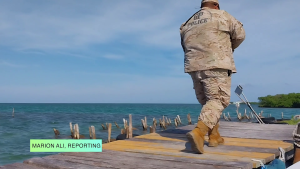 Marion Ali, Reporting
Marion Ali, Reporting
Authorities are relying on a shift in its management policy that now require the legal-size of lobster tails fished to weigh more than four ounces, along with ramped-up patrols as part of the Blue Bond arrangement (a debt for nature swap) that Belize and The Nature Conservancy signed to in 2021 to give the lobster stocks time to multiply. As a result of the agreement with The Nature Conservancy, Belize must declare and protect at least 30% of our sea spaces. It’s an exercise that Dr Butler says is necessary to protect the stocks that are there now.

Dr. Mark Butler
Dr. Mark Butler
“If it’s done right, they can support really healthy fisheries, you know, and it’s, and it’s, and we, as scientists, it’s one of the things we certainly want to do. We, we’re not trying to protect lobsters. We want to protect the long-term sustainability of the fisheries for the fishermen. We recognize that. But, you know, we humans, if we are not watched and regulated and so on and so forth, we tend to overuse our resources. And that’s why fishermen are just like the rest of us. And if there aren’t regulations, you know, then there could be problems with the fishery. So that’s why we need fishery regulations, not that we’re not trying to keep fishermen from catching fishes or lobsters in this case, we’re simply trying to manage it for the long term.”
Benedicto Perez has been a fisherman for 21 years. He told News Five that there are young fishermen who fish undersized marine products.
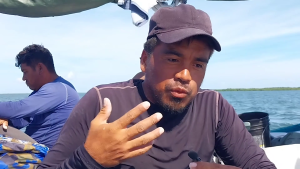
Benedicto Perez
Benedicto Perez, Fisherman
“Sometimes it does happen that the newcomers, the new fishermen coming into the industry, don’t have much experience about where to find them and how to find lobster. So they will come and they will just target the easiest thing out there, whatever it is fish, Illegal stuff, whatever – they’ll just go and target the easiest thing because they want to make money.”
Supporting Perez’ observation is Humberto Avilez, who has been fishing for 38 years. He agrees that there is overfishing of lobsters, and he attributes that to what he thinks is an overabundance of fishing licenses and not enough patrols.
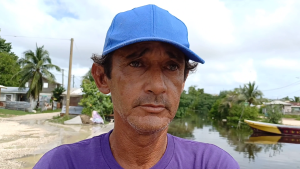
Humberto Avilez
Humberto Avilez, Fisherman
“Right now there’s too many fishermen, not like when I used to fish. It was a little bit of fishermen. The boats now are carrying 15 men in one boat. Some are carrying 10 men in one boat. The sea is getting more populated, too many men, overfishing. They got one boat patrol in the morning. By the time he goh to five miles and come back, man, already … then it takes a whole day to come back. They need more patrols. That’s the only way they stop illegal fishing.”
Boat license. two, three, four, five, six; two more persons. Hampton Gamboa told News Five that asking fishermen to produce their fishing licenses has become standard procedure for every patrol, as well as is documenting what they find, including the names of the vessels moored at the locations where they are found. If anything is found to be awry, arrests follow, he assured.
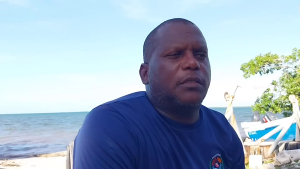
Hampton Gamboa
Hampton Gamboa
“The highest registered commercial fishers for any one given year was 3,800 fishers, and that was a couple years ago – about 2021 or 22. This year so far, we are a little bit more than halfway through the year and we still haven’t had 3,000 fishermen come in as yet. So last year’s number dropped significantly.”
Benedicto Perez said that he has discovered that areas where lobster once populated are bare now and has also seen areas that never had them are populated now.
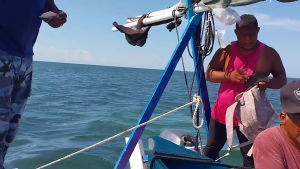 Benedicto Perez
Benedicto Perez
“This year I have seen more abundant lobster in this particular area because the lobster – you need to understand and I have a lot of knowledge about lobster. My first two trips of this season I did it down south. Lobster was scarcely bad. Some people are saying that it’s because of illegal fishing – people from the neighboring countries coming close because it was all the way down south, so people are saying that. Maybe it could be or maybe it’s just the way lobsters migrate. Okay for me in that case it depends on the weather, tropical storms, cold fronts and things like that.”
Dwight Neal says he believes that there have not been sufficient independent studies done to definitively pinpoint the reasons why the lobsters now populate different areas, but he offered his opinion.
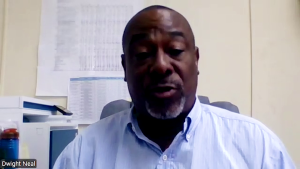
Dwight Neal
Dwight Neal, Marine Biologist
“There are several variables, climate change being one of them, changes in user patterns or usage patterns because if you notice, years ago, there were not as many boats around. There was not as much traffic, particularly between Belize City and San Pedro, that entire corridor that goes just west of St. George’s Caye and goes through Port of Stock and goes to Caye Caulker. When I started with the Fisheries Department many years ago, there were very few boats that were trafficking that area. Now there are boats almost every hour, almost every half an hour. So that in itself is a disturbance to the habitat. It’s incumbent on the scientists and the managers to investigate what’s happening there.”
This story was produced with support from Internews’ Earth Journalism Network.





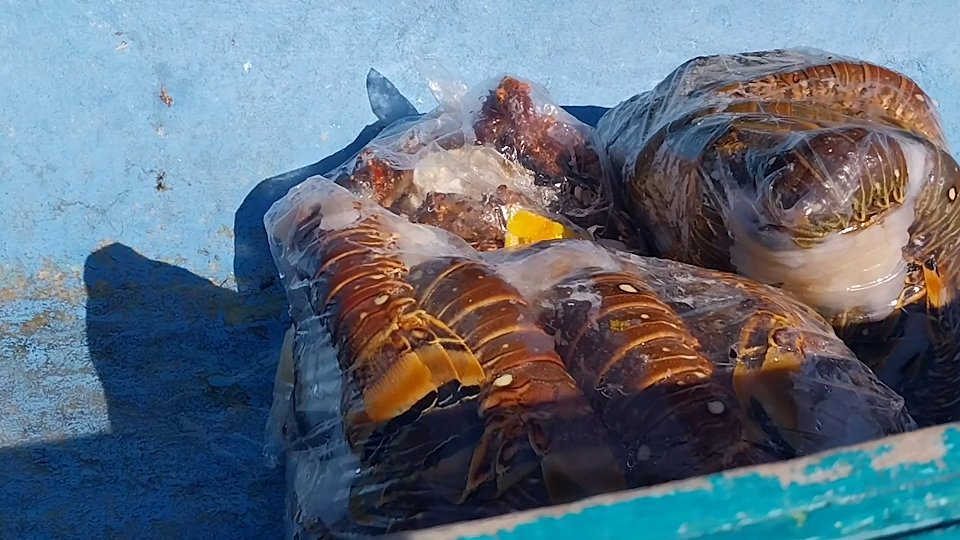

Facebook Comments